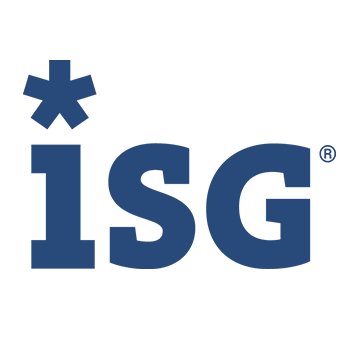STAMFORD, Conn.– The life sciences industry is under considerable pressure to embrace digital innovation to meet the challenges of the COVID-19 pandemic and other marketplace forces, according to a new report published today by Information Services Group (ISG) (Nasdaq: III), a leading global technology research and advisory firm.
The 2020 ISG Provider Lens™ Life Sciences Digital Services Global Report sees several challenges pushing biopharma and device companies to become more innovative through digitization. In addition to COVID-19, these include the rise of patient-centric business models, growing public demand for more convenient and efficient digital delivery, and an aging population increasing overall demand for healthcare. Heightened merger-and-acquisition activity and new regulations also are creating competitive pressures within the industry.
“Unprecedented challenges caused by the COVID-19 pandemic are pushing the digital envelope to cover all aspects of patient engagement, telemedicine and areas of drug development that were once considered off limits,” said Jenn Stein, partner and leader, ISG Life Sciences. “These new approaches are taking hold in an environment where regulatory hurdles and cost pressures have never been higher.”
Life sciences firms have been using contract research organizations, or CROs, for decades in outsourcing relationships, the report notes. However, improvements in technology and accompanying cost reductions have led many biopharma companies to increasingly rely on CRO partners for more strategic and business-critical activities.
In addition, manufacturing supply chain functions are increasingly being covered in outsourcing agreements in the life sciences industry, the report says. This outsourced supply chain often engages with a global network of contract manufacturers for the production and distribution of medical devices, drugs, vaccines and tests. Digital transformation plays an important role in this area because supply chains are becoming increasingly automated, using connected sensors and intelligent automation to improve efficiencies.
The report also finds the COVID-19 pandemic has increased the direct interactions between drug manufacturers, healthcare providers and patients. These interactions will continue even as the pandemic subsides because of the now-proven efficiencies, cost savings and improved patient-centricity they have created. With wider adoption of technologies such as telemedicine and remote monitoring, few healthcare providers and patients will be willing to go back to pre-pandemic delivery models.
But delivering digital services for life sciences can be complex, the report says, requiring extensive support and services from suitable providers. In addition to the CROs, traditional IT providers are important players in this market. These two groups of providers have offered converging products and services in recent years.
Several CROs have developed sophisticated IT capabilities in response to client demand for advanced technological solutions. At the same time, traditional IT providers are working to develop deeper expertise in life sciences to offer comprehensive solutions specific to the industry. In addition, CROs and IT providers are increasingly combining their respective capabilities to meet the changing demands of life sciences clients.
The 2020 ISG Provider Lens™ Life Sciences Digital Services Global Report evaluates the capabilities of 25 providers across three quadrants: Clinical Development Digital Transformation Services, Patient Engagement Digital Transformation Services and Manufacturing Supply Chain Digital Transformation Services.
The report names Capgemini, Cognizant, HCL, TCS and Wipro as leaders in all three quadrants. Accenture, Atos, IQVIA and PPD are named as leaders in two quadrants, and Stefanini is named as a leader in one.


